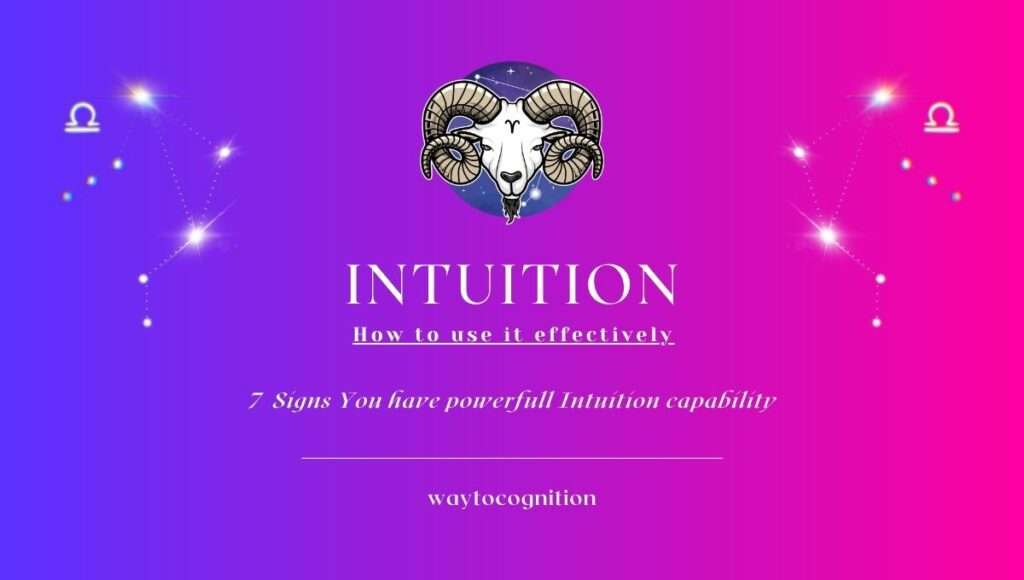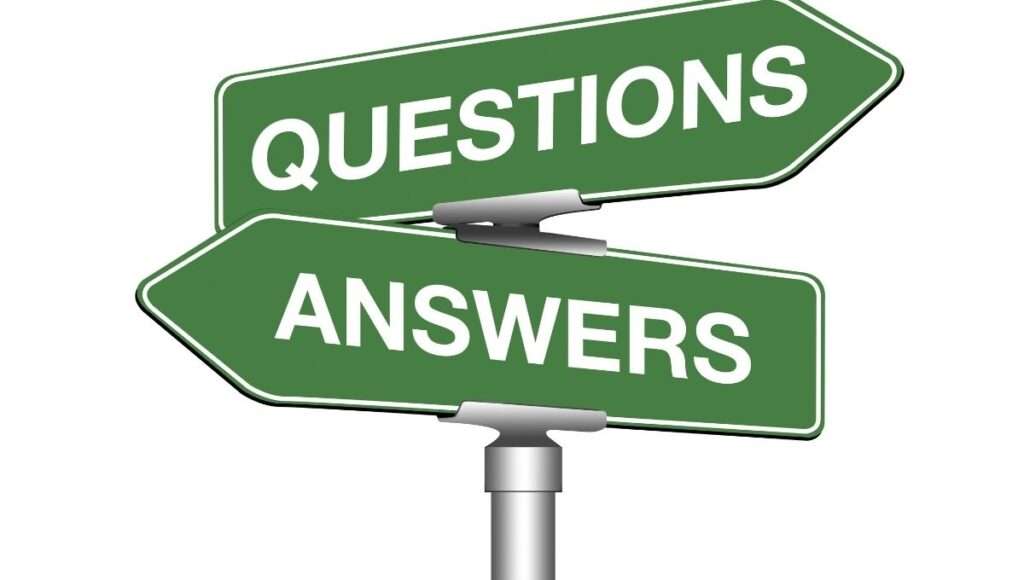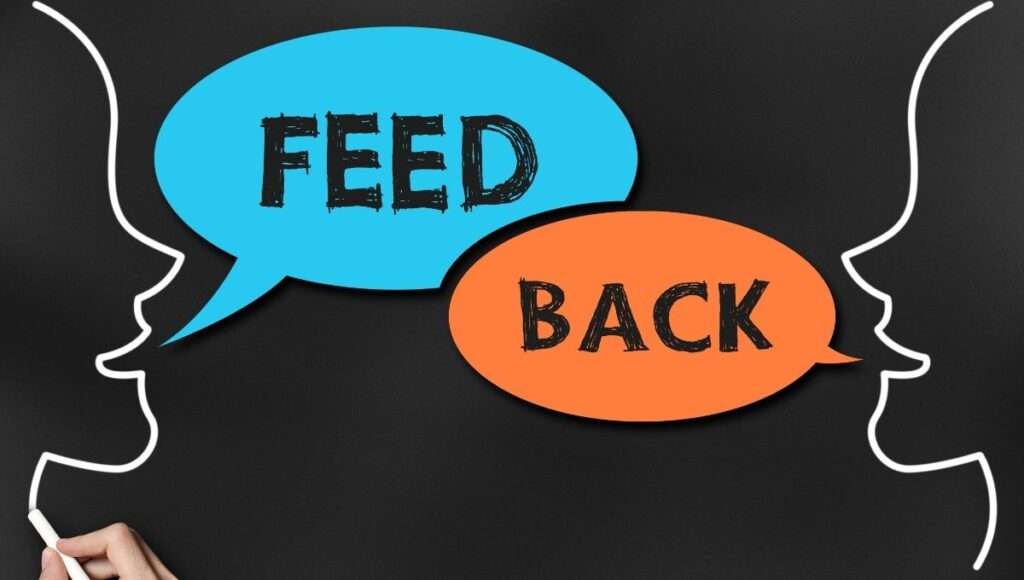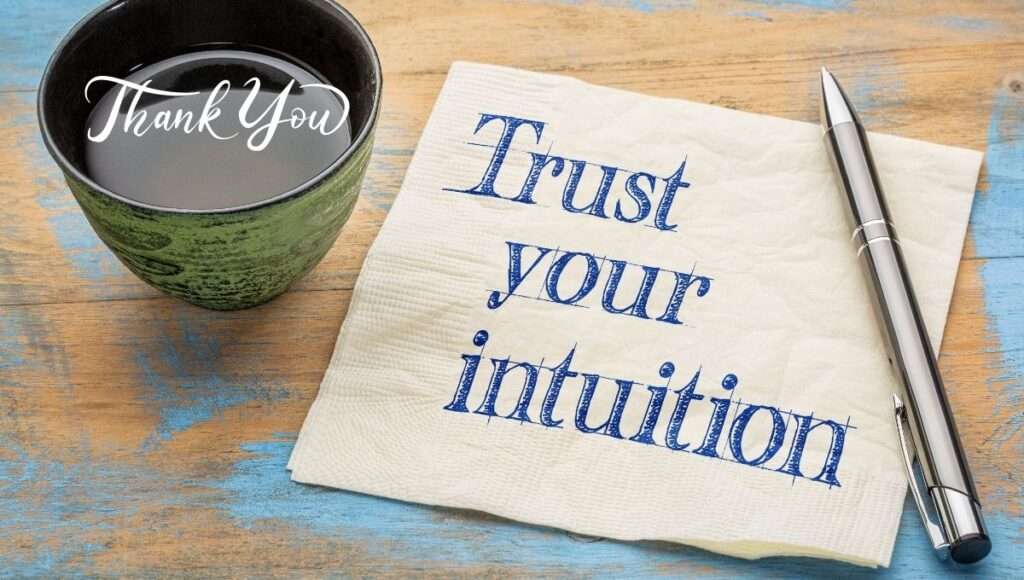The ultimate guide to Intuition:7 Signs You Have a Strong Intuition and How to Use It Effectively

Have you ever had a hunch about something that turned out to be true? Have you ever felt a sudden urge to do something that led you to an amazing opportunity? Have you ever sensed someone’s feelings or thoughts without them saying a word?
If you answered yes to any of these questions, then you have experienced the power of intuition.
Intuition is the ability to know or understand something without conscious reasoning or evidence. It is a natural gift that we all possess, but some of us are more aware of it than others.
Intuitions can help us in many aspects of our lives, such as making decisions, solving problems, finding our purpose, connecting with others, and achieving our goals.
But how do we know if we have a strong intuition? And how do we use it effectively?
In this blog post, I will share with you seven signs that indicate you have a strong intuition, and how you can use it to enhance your personal and professional success. I will also discuss the difference between intuition and logic, and how they can work together for optimal results.
Whatever I’m gonna tell you in this blog is purely based on my own experience and extensive research, so stay with me because you’re gonna witness an extremely interesting phenomenon.
By reading this post, you will learn:
- How to recognize the signs of a strong intuition
- How to use your intuitions effectively
- How to balance your intuitions and logic
- How to benefit from your intuitions in different situations
Ready? Let’s get started!
How to Recognize the Signs of a Strong Intuition

Intuition is not something that you can measure or quantify, but there are some indicators that can help you determine if you have a strong intuition or not.
Here are seven signs that suggest you have a strong intuition:
1. You are good at reading people’s emotions and intentions
One of the signs of a strong intuition is being able to sense what others are feeling or thinking without them telling you. You can pick up on subtle cues such as body language, facial expressions, tone of voice, or eye contact.
You can also tell if someone is lying, hiding something, or being sincere. You can easily empathize with others and understand their perspectives.
This skill can help you in your personal and professional relationships, as you can communicate more effectively, build trust, and avoid conflicts.
2. You have vivid dreams and synchronicities
Another sign of strong intuition is having vivid dreams that often come true or contain meaningful messages. You may also experience synchronicities, which are meaningful coincidences that seem to guide you or confirm your intuition.
For example, you may dream of someone you haven’t seen in a long time, and then run into them the next day. Or you may think of a question, and then find the answer in a book, a song, or a conversation.
These experiences show that your intuition is connected to a higher source of wisdom and guidance and that you are open to receiving it.
3. You trust your gut feelings and act on them
Another sign of a strong intuition is trusting your gut feelings and acting on them. You don’t ignore or doubt your inner voice but rather follow it with confidence and courage.
You often have a clear sense of what is right or wrong for you, and you don’t let others influence your decisions. You also have good timing, and you know when to act or wait.
This skill can help you in your personal and professional life, as you can make better choices, avoid mistakes, and seize opportunities.
4. You are creative and innovative
Another sign of a strong intuition is being creative and innovative. You have a rich imagination and a knack for finding new solutions to old problems. You can think outside the box and come up with original ideas.
You are also flexible and adaptable, and you can adjust to changing situations. You are not afraid to try new things or experiment with different approaches.
This skill can help you in your personal and professional life, as you can express yourself more authentically, discover your talents, and create value for yourself and others.
5. You are open-minded and curious
Another sign of a strong intuition is being open-minded and curious. You are not limited by your beliefs or assumptions, but rather willing to explore new possibilities and perspectives. You are always learning and growing.
You are also curious about yourself and others, and you seek to understand the deeper meaning behind everything. You are not satisfied with superficial answers or explanations but rather dig deeper into the essence of things.
This skill can help you in your personal and professional life, as you can expand your horizons, gain new insights, and develop your intuition further.
6. You are empathetic and compassionate
Another sign of a strong intuition is being empathetic and compassionate. You have a big heart and a genuine concern for others. You can feel their pain or joy as if it were your own.
You are also compassionate towards yourself, and you treat yourself with kindness and respect. You don’t judge yourself or others harshly, but rather accept them as they are.
This skill can help you in your personal and professional life, as you can build stronger bonds, heal wounds, and spread positivity.
7. You are confident and decisive
Another sign of a strong intuition is being confident and decisive. You have high self-esteem and a clear sense of who you are and what you want. You don’t need external validation or approval to feel good about yourself.
You are also decisive, and you don’t procrastinate or hesitate when making decisions. You trust your intuition to guide you to the best option for you, even if it goes against the norm or the expectations of others.
This skill can help you in your personal and professional life, as you can pursue your goals, overcome challenges, and achieve success.
How to Use Your Intuition Effectively
Now that you know the signs of a strong intuition, how can you use it effectively?
Here are some tips and strategies on how to tap into your intuition and apply it to your life:
Meditate regularly and listen to your inner voices

One of the best ways to use your intuitions effectively is to meditate regularly and listen to your inner voice. Meditation is a practice that helps you calm your mind, relax your body, and connect with your spirit.
By meditating regularly, you can quiet the noise of your thoughts, emotions, and external distractions, and tune in to the voice of your intuition.
Your inner voice is the voice of your true self, your higher self, or your soul. It is the voice that knows what is best for you, what makes you happy, what aligns with your purpose.
To listen to your inner voice, simply ask yourself questions such as:
- What do I really want?
- What do I really need?
- What do I really feel?
- What do I really think?
- What do I really believe?
Then listen carefully to the first answer that comes to your mind, without analyzing it or judging it. This answer is usually the voice of your intuition.
You can also use affirmations such as:
- I trust my intuitions
- I listen to my inner voices
- I follow my gut feelings
- I act on my intuition with confidence and courage
You can also use visualization techniques such as imagining yourself in a situation where you need to use your intuition, and seeing yourself following it successfully.
By meditating regularly and listening to your inner voice, you can strengthen your intuition and use it more effectively.
Pay attention to your body signals and sensations

Another way to use your intuition effectively is to pay attention to your body’s signals and sensations. Your body is a powerful tool that can communicate with your intuition and provide you with valuable information.
Your body signals and sensations can include:
- Butterflies in your stomach
- Goosebumps on your skin
- A tingling sensation in your hands or feet
- A warmth or coldness in your chest or throat
- A tightness or relaxation in your muscles
- A heaviness or lightness in your head
- A pain or pleasure in your heart
These signals and sensations can indicate different things, such as:
- A yes or no answer to a question
- A confirmation or a warning about a decision
- An attraction or a repulsion towards a person or a situation
- A comfort or a discomfort with a choice or an action
- An excitement or a fear about an opportunity or a challenge
To pay attention to your body signals and sensations, simply scan your body from head to toe, and notice what you feel. Then ask yourself what this feeling means, and what it is telling you.
You can also use affirmations such as:
- I pay attention to my body’s signals and sensations
- I trust my body’s wisdom
- I follow my body’s guidance
- I act on my body’s intuition
You can also use breathing techniques such as taking deep breaths, holding them for a few seconds, and releasing them slowly. This can help you relax your body, clear your mind, and connect with your intuition.
By paying attention to your body signals and sensations, you can use your intuition more effectively.
Ask yourself questions and seek answers from within

Another way to use your intuition effectively is to ask yourself questions and seek answers from within. Your intuition is a source of infinite wisdom and knowledge that can help you find solutions to any problem, answer any question, or clarify any doubt.
To ask yourself questions and seek answers from within, simply write down the question that you want to ask your intuition, such as:
- What is the best course of action for me in this situation?
- What is the most important thing for me to focus on right now?
- What is the best way for me to achieve my goal?
- What is the hidden opportunity or lesson in this challenge?
- What is the true meaning or purpose of this experience?
Then close your eyes, take a few deep breaths, and relax. Then say the question out loud or in your mind, and listen for the answer that comes from within.
The answer may come in different forms, such as:
- A word or a phrase
- An image or a symbol
- A sound or a music
- A feeling or an emotion
- A memory or a flashback
The answer may also come at different times, such as:
- Immediately after asking the question
- A few minutes or hours later
- The next day or the next week
- In your dreams or in your meditation
The answer may also come from different sources, such as:
- Your own intuition
- Your spirit guides or angels
- Your higher self or soul
- Your subconscious mind or memory
- The universe or God
The key is to be open, receptive, and patient. Don’t force the answer or expect it to come in a certain way or at a certain time. Trust that the answer will come when you are ready and when it is best for you.
You can also use affirmations such as:
- I ask myself questions and seek answers from within
- I trust my inner wisdom and knowledge
- I follow my inner guidance and direction
You can also use journaling techniques such as writing down your question and your answer and reflecting on how they resonate with you.
By asking yourself questions and seeking answers from within, you can use your intuition more effectively.
Follow your passions and interests

Another way is to follow your passions and interests. Your passions and interests are the things that make you happy, excited, and fulfilled. They are the things that express your true self, your talents, and your purpose.
By following your passions and interests, you can align yourself with your intuition, as your intuition is always guiding you towards what is best for you, what makes you happy, and what aligns with your purpose.
To follow your passions and interests, simply ask yourself what you love to do, what you are good at, what you want to learn, what you want to create, and what you want to contribute.
Then pursue those things with enthusiasm, dedication, and joy. Don’t let fear, doubt, or criticism stop you from doing what you love. Don’t let others tell you what you should or shouldn’t do. Don’t let practicality or rationality limit your dreams.
You can also use affirmations such as:
- I follow my passions and interests
- I trust my intuition to lead me to my purpose
- I follow my intuition to express my true self
- I act on my intuition to create value for myself and others
You can also use goal-setting techniques such as writing down your passions and interests, setting SMART goals (Specific, Measurable, Achievable, Relevant, Time-bound), and taking action steps towards achieving them.
By following your passions and interests, you can use your intuition more effectively.
Experiment with different options and scenarios

Another way to use is to experiment with different options and scenarios. Sometimes, your intuition may not give you a clear or definitive answer, but rather a range of possibilities or alternatives. This is because your intuition is not fixed or rigid, but rather flexible and adaptable.
By experimenting with different options and scenarios, you can explore the potential outcomes of each one, and see which one feels right for you. You can also discover new opportunities or solutions that you may not have considered before.
To experiment with different options and scenarios, simply list down the options or scenarios that you have in mind, such as:
- Option A: Quit my job and start my own business
- Option B: Stay at my job and ask for a promotion
- Option C: Stay at my job and look for a side hustle
Then imagine yourself in each option or scenario, and notice how you feel. You can also ask yourself questions such as:
- How does this option or scenario align with my values and goals?
- How does this option or scenario affect my happiness and well-being?
- How does this option or scenario impact my relationships and environment?
- How does this option or scenario challenge me and help me grow?
Then compare the pros and cons of each option or scenario, and see which one resonates with you the most. You can also try out each option or scenario in real life, if possible, and see how it works out for you.
You can also use affirmations such as:
- I experiment with different options and scenarios
- I trust my intuition to show me the best option or scenario for me
- I follow my intuition to choose the option or scenario that feels right for me
- I act on my intuition to make the best of the option or scenario that I choose
You can also use decision-making techniques such as a decision matrix, a SWOT analysis (Strengths, Weaknesses, Opportunities, Threats), or a pros-and-cons list to evaluate each option or scenario objectively.
By experimenting with different options and scenarios, you can use your intuition more effectively.
Seek feedback and guidance from others who have strong intuition

Another way to use your intuition effectively is to seek feedback and guidance from others who have strong intuition. These can be people who you admire, respect, or trust, such as:
- Your mentors or coaches
- Your friends or family members
- Your role models or idols
- Your spiritual teachers or guides
By seeking feedback and guidance from others who have strong intuition, you can learn from their experiences, insights, and advice. You can also get a different perspective, a confirmation, or a challenge to your own intuition.
To seek feedback and guidance from others who have strong intuition, simply ask them questions such as:
- How do you use your intuition in your life?
- How do you recognize the signs of your intuition?
- How do you develop and strengthen your intuition?
- How do you balance your intuition and logic?
- How do you deal with the challenges or obstacles that come with following your intuition?
Then listen to their answers with an open mind and heart. Don’t take their words as the absolute truth, but rather as a source of inspiration, information, and support.
You can also use affirmations such as:
- I seek feedback and guidance from others who have strong intuition
- I trust my intuition to attract the right people to help me
- I follow my intuition to learn from others who have strong intuition
- I act on my intuition to apply what I learn from others who have strong intuition
You can also use networking techniques such as joining online or offline communities, groups, or forums where people who have strong intuition gather and share their stories, tips, and resources.
By seeking feedback and guidance from others who have strong intuition, you can use your intuition more effectively.
Practice gratitude and positivity

Another way to use your intuition effectively is to practice gratitude and positivity. Gratitude is the feeling of appreciation and thankfulness for what you have, what you experience, and what you receive. Positivity is the attitude of optimism and hopefulness for what you can do, what you can achieve, and what you can create.
By practicing gratitude and positivity, you can align yourself with your intuition, as your intuition is always guiding you towards what is good, what is beneficial, and what is meaningful for you.
To practice gratitude and positivity, simply express your gratitude and positivity daily, such as:
- Writing down three things that you are grateful for each day
- Saying thank you to yourself and others for everything that you have and experience
- Complimenting yourself and others for everything that you do and achieve
- Celebrating yourself and others for everything that you create and contribute
You can also use affirmations such as:
- I practice gratitude and positivity
- I trust my intuition to show me the good in everything
- I follow my intuition to appreciate everything
- I act on my intuition to create more good for myself and others
You can also use visualization techniques such as imagining yourself in a situation where you are using your intuition successfully, and feeling grateful and positive about it.
By practicing gratitude and positivity, you can use your intuition more effectively.
Intuition vs Logic: Which One Should You Follow?

Now that you know how to use your intuition effectively, let’s talk about the difference between intuition and logic, and how they can work together for optimal results.
Intuition and logic are two different ways of thinking and processing information. They are not mutually exclusive, but rather complementary.
Intuition is the ability to know or understand something without conscious reasoning or evidence. It is based on feelings, emotions, instincts, impressions, hunches, or gut feelings.
Logic is the ability to reason or argue based on facts, evidence, rules, principles, or criteria. It is based on analysis, evaluation, deduction, induction, or calculation.
Both intuition and logic have their pros and cons. Here are some of them:
Pros of Intuition
- It is fast and efficient. It can help you make quick decisions or judgments without wasting time or energy.
- It is creative and innovative. It can help you find new solutions or ideas that logic may not be able to generate.
- It is holistic and intuitive. It can help you see the big picture or the essence of things that logic may not be able to capture.
- It is personal and authentic. It can help you express your true self or your purpose that logic may not be able to define.
Cons of Intuition
- It is subjective and biased. It can be influenced by your emotions, beliefs, assumptions, or expectations that may not be accurate or objective.
- It is vague and unclear. It can be hard to explain or justify your intuition to yourself or others who may not share it.
- It is risky and uncertain. It can lead you to make mistakes or errors that logic may be able to prevent or correct.
- It is limited and incomplete. It may not have all the information or data that logic may be able to provide or verify.
Pros of Logic
- It is objective and rational. It can help you avoid or reduce your biases, emotions, or assumptions that may cloud your judgment.
- It is clear and precise. It can help you explain or justify your logic to yourself or others who may question it.
- It is reliable and consistent. It can help you make accurate or correct decisions or judgments that intuition may not be able to guarantee.
- It is comprehensive and complete. It can help you have all the information or data that intuition may not be able to access or confirm.
Cons of Logic
- It is slow and tedious. It can take a lot of time or energy to gather, process, or evaluate all the facts, evidence, or criteria.
- It is rigid and conventional. It can limit your creativity or innovation by following the same rules, principles, or methods.
- It is analytical and rational. It can miss the big picture or the essence of things by focusing on the details, facts, or evidence.
- It is impersonal and detached. It can ignore your true self or your purpose by following the logic of others, society, or systems.
As you can see, both intuition and logic have their strengths and weaknesses. They are not enemies, but allies. They can balance each other, complement each other, and enhance each other.
The question is not which one should you follow, but how can you use both of them effectively.
Here are some tips on how to balance your intuition and logic:
Tip 1. Use your intuition to generate options, and use your logic to evaluate them
One way to balance your intuition and logic is to use your intuition to generate options and use your logic to evaluate them.
For example, if you are faced with a decision, you can use your intuition to come up with different options or scenarios that appeal to you, and then use your logic to compare the pros and cons of each one and see which one makes the most sense for you.
This way, you can use your intuition to create possibilities and use your logic to narrow them down.
Tip 2. Use your logic to plan your actions, and use your intuition to execute them
Another way to balance your intuition and logic is to use your logic to plan your actions and use your intuition to execute them.
For example, if you have a goal, you can use your logic to set SMART goals (Specific, Measurable, Achievable, Relevant, Time-bound), and then use your intuition to take action steps toward achieving them.
This way, you can use your logic to organize your actions and use your intuition to guide your actions.
Tip 3. Use your intuition to check your logic, and use your logic to check your intuition
Another way to balance your intuition and logic is to use your intuition to check your logic and use your logic to check your intuition.
For example, if you have a conclusion, you can use your intuition to see if it feels right for you, and then use your logic to see if it makes sense for you.
This way, you can use your intuition to validate your logic and use your logic to verify your intuition.
Conclusion

Intuition is a powerful gift that we all have. It can help us in many aspects of our lives, such as making decisions, solving problems, finding our purpose, connecting with others, and achieving our goals.
However, having a strong intuition is not enough. We also need to know how to use it effectively.
In this blog post, I shared with you seven signs that indicate you have a strong intuition, and how you can use it effectively. I also discussed the difference between intuition and logic, and how they can work together for optimal results.
By reading this post, I hope you learned:
- How to recognize the signs of a strong intuition
- How to use your intuition effectively
- How to balance your intuition and logic
- How to benefit from your intuition in different situations
I hope you enjoyed this post and found it useful. If you did, please share it with others who may benefit from it as well.
Also, please leave a comment below and let me know what you think. I would love to hear from you!
Do you have a strong intuition? How do you use it in your life? How do you balance it with logic? What challenges or benefits have you experienced from following your intuition?
Please share your thoughts and experiences with me!
And don’t forget to subscribe to my blog for more content on personal development and spirituality!
Thank you for reading!
FAQs
What is the difference between intuition and instinct?
Intuition and instinct are both natural abilities that we have, but they are not the same thing. Instinct is the innate tendency or impulse that we have to behave in a certain way in response to a stimulus or a situation. It is based on survival, adaptation, or reproduction. Intuition is the ability to know or understand something without conscious reasoning or evidence. It is based on feelings, emotions, insights, or hunches.
For example, when you see a snake, your instinct may tell you to run away or freeze, because it is a potential threat. This is a reflex action that you don’t have to think about. When you meet a new person, your intuition may tell you if you like them or not, because you sense their vibe or energy. This is a subtle perception that you may not be able to explain.
Both intuition and instinct are useful and important, but they serve different purposes. Instinct helps you survive and adapt to your environment, while intuition helps you thrive and grow as a person.
How can I develop and strengthen my intuition?
There are many ways to develop and strengthen your intuition, but here are some of the most effective ones:
- Meditate regularly and listen to your inner voice. Meditation helps you calm your mind, relax your body, and connect with your spirit. By meditating regularly, you can quiet the noise of your thoughts, emotions, and external distractions, and tune in to the voice of your intuition.
- Pay attention to your body signals and sensations. Your body is a powerful tool that can communicate with your intuition and provide you with valuable information. By paying attention to your body signals and sensations, you can learn to trust your gut feelings and act on them.
- Ask yourself questions and seek answers from within. Your intuition is a source of infinite wisdom and knowledge that can help you find solutions to any problem, answer any question, or clarify any doubt. By asking yourself questions and seeking answers from within, you can access and use your inner wisdom and knowledge.
- Follow your passions and interests. Your passions and interests are the things that make you happy, excited, and fulfilled. They are the things that express your true self, your talents, and your purpose. By following your passions and interests, you can align yourself with your intuition, as your intuition is always guiding you towards what is best for you.
- Experiment with different options and scenarios. Sometimes, your intuition may not give you a clear or definitive answer, but rather a range of possibilities or alternatives. By experimenting with different options and scenarios, you can explore the potential outcomes of each one, and see which one feels right for you.
- Seek feedback and guidance from others who have strong intuition. You can learn from the experiences, insights, and advice of others who have strong intuition. You can also get a different perspective, a confirmation, or a challenge to your own intuition. By seeking feedback and guidance from others who have strong intuition, you can enhance your own intuition.
- Practice gratitude and positivity. Gratitude and positivity help you align yourself with your intuition, as your intuition is always guiding you towards what is good, what is beneficial, and what is meaningful for you. By practicing gratitude and positivity, you can attract more good things into your life.
By doing these things regularly, you can develop and strengthen your intuition over time.
How do I know if I am following my intuition or my ego?
Sometimes, it can be hard to tell if you are following your intuition or your ego, as they may sound similar or conflicting. However, there are some ways to distinguish them:
- Your intuition is the voice of your true self, your higher self, or your soul. It is the voice that knows what is best for you, what makes you happy, and what aligns with your purpose. Your ego is the voice of your false self, your lower self, or your personality. It is the voice that wants what is best for itself, what makes it look good, and what satisfies its desires.
- Your intuition speaks with love, peace, joy, and wisdom. It speaks with clarity, simplicity, and certainty. It speaks with confidence, courage, and conviction. Your ego speaks with fear, doubt, anxiety, and confusion. It speaks with complexity, ambiguity, and uncertainty. It speaks with insecurity, hesitation, and indecision.
- Your intuition feels good, right, and natural. It feels like a flow, a harmony, or a synchronicity. It feels like a joy, a bliss, or a fulfillment. Your ego feels bad, wrong, or forced. It feels like a struggle, a conflict, or a resistance. It feels like a pain, a frustration, or a dissatisfaction.
To know if you are following your intuition or your ego, you can ask yourself these questions:
- Does this voice come from love or fear?
- Does this voice speak with clarity or confusion?
- Does this voice feel good or bad?
The answer that comes from love, clarity, and good is usually your intuition. The answer that comes from fear, confusion, and bad is usually your ego.
However, sometimes your intuition may challenge you or push you out of your comfort zone. This may not feel good or comfortable at first, but it will ultimately lead you to growth and happiness. Your ego may also comfort you or please you in the short term, but it will ultimately lead you to stagnation and unhappiness.
Therefore, you also need to consider the long-term consequences of following your intuition or your ego.
You can ask yourself these questions:
- Does this voice lead me to my purpose or distract me from it?
- Does this voice help me grow or keep me small?
- Does this voice create value or waste time?
The answer that leads you to your purpose, helps you grow, and creates value is usually your intuition. The answer that distracts you from your purpose, keeps you small, and wastes time is usually your ego.
By asking yourself these questions and listening to your feelings, you can know if you are following your intuition or your ego.
How can I use my intuition in different situations?
You can use your intuition in different situations by applying the tips and strategies that I shared with you in this blog post.
For example:
- If you want to make a decision, you can use your intuition to generate options and use your logic to evaluate them.
- If you want to achieve a goal, you can use your logic to plan your actions and use your intuition to execute them.
- If you want to find a solution, you can use your intuition to ask yourself questions and seek answers from within.
- If you want to express yourself, you can use your intuition to follow your passions and interests.
- If you want to learn something new, you can use your intuition to experiment with different options and scenarios.
- If you want to get feedback or guidance, you can use your intuition to seek feedback and guidance from others who have strong intuition.
- If you want to attract more good things into your life, you can use your intuition to practice gratitude and positivity.
By using your intuition in different situations, you can enhance your personal and professional success.



